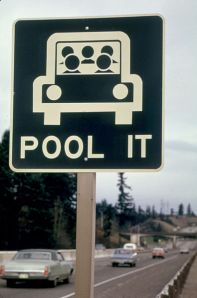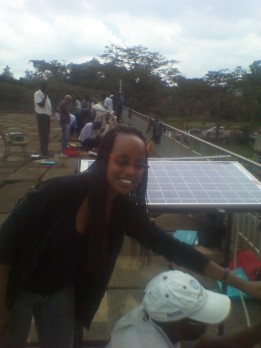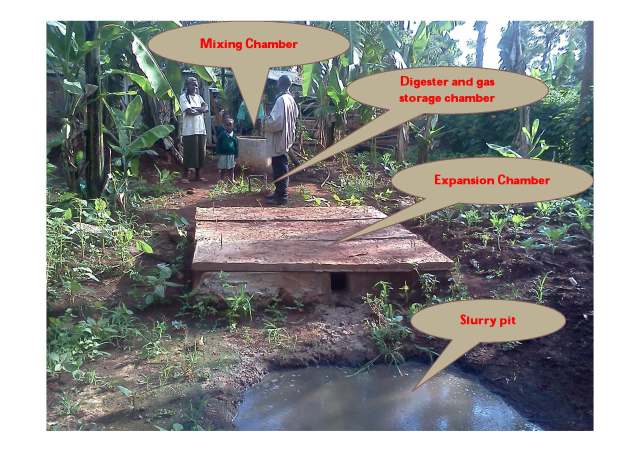We all know how Kenyans at large, love a good bargain! So, your faithful green blogger went on a search to see Eco-friendly ways to save money and make extra cash.
Here are a few tips:
- SALE OF ORGANIC PRODUCE: The Organic Farmers’ market is fast catching in Kenya and the world at large, as more and more people are conscious of what they are consuming. Organic foods are sold at a premium at suburban and city organised Organic Markets, and you can opt to farm and sell these produce in such gatherings at a better price than “MamaSukuma” at the neighbouring kiosk.

CONVENTIONAL VS. ORGANIC FARMING
According to the USDA National Organic Standards Board (NOSB), Organic agriculture is defined as an” ecological production management system that promotes and enhances biodiversity, biological cycles and soil biological activity. It is based on minimal use of off-farm inputs and on management practices that restore, maintain and enhance ecological harmony.” (NOSB,1995) Organic practices that maintain the integrity of the crops and soil include Crop rotation, green manure, biological pest control and composting.

Organic Farmer’s Market Set- Up.
In the world, the demand for Organic produce has increased rapidly, reaching an estimated $63 Billion dollars in revenue, as of the year 2012. In Kenya, the national coordinating body for organic agricultural activities is the Kenya Organic Agriculture Network (KOAN). Not only do they help certify you as an Organic farmer but they provide a network of like-minded entrepreneurs and trainings that better your products and services.

100% Organic – Certified.
- RECYCLE! RECYCLE! RECYCLE! What better way to make extra cash than to recycle? In Kenya, there are countless opportunities for the Youth and the Public at large, to recycle for some extra cash. How? Case in Point is Ms. LornaRutto, a graduate in B.Comm (Finance and Accounting).

Plastic Poles fencing the Aberdare National Park.
She began the green venture, Eco-Post Nairobi which recycles plastic to make plastic fencing poles! What a brilliant idea! Kenya currently stands at 3% forest cover and her green venture ensures reduced rates of deforestation as a large percentage of cut trees go to Fencing.

Recycled plastic fencing poles at the Factory.
Paper, Water, E-waste and most types of waste can also be recycled. I once worked at an Organisation that recycled the office waste paper to Toilet paper. This not only reduced the overall expenditure of the company but also reduced our overall carbon footprint as individuals and as a Company as a whole.

FUN FACTS ON PAPER RECYCLING.
Water is also recycled for use in lawn and landscape irrigation, gardening, cleaning and WC (Water Closet Flushing). E-waste recycling in Kenya is slowly coming up as more people come to terms with the futility of holding onto electronics whereas you can earn by discarding them. The Leafy Agenda featured WEEE Centre Kenya, a Non-Governmental Organisation that recycles and refurbishes computers, Televisions and other electronics. For more information on E-waste recycling model in Kenya, follow this link: https://theleafyagenda.wordpress.com/2012/11/20/e-waste-recycling-in-kenya-did-you-know/

Refurbished Computer at the WEEE Centre.
- CAR-POOLING: Car-pooling is the practice of the sharing of car journeys in that 2 or more people travel in a car. On Kenyan roads, we have the Public Service Vehicles (PSV’s) fondly referred to as “Matatus” as well as personal automobiles of various models. With Carpooling you can charge your fellow commuters a fee on a daily, weekly or monthly basis, earning extra cash in the comfort of your car.

CAR POOLING
To reduce Carbon footprint in the transport sector, Carpooling communities make it possible to reduce a community’s carbon footprint. This will also reduce their transport expenditure improving their savings. Another way to reduce Carbon footprint is to purchase cars that produce lower carbon emissions. Such are as: https://theleafyagenda.wordpress.com/2012/11/15/how-green-is-your-car/

Biogas -powered VW Beetle
- ORGANIC MANURE: More and more farmers are leaning towards more holistic and natural methods of farming and Organic manure is one practice that maintains soil health and affords essential nutrients to crops in your garden. TIP: Do NOT discard organic waste from your house. Instead separate it from all other waste and start a compost pile. Composting makes natural manure from organic waste, and you can even sell the excess to fellow farmers. DID YOU KNOW? It takes up to 18 years for a corn cob to decompose in a landfill, and less than a year in a compost pile?

Food waste can be converted to Compost.
- SHOP ONLINE: Shopping online is somewhat a new trend in Kenya. It is a time saving practice that eliminates travel and the common use of plastic paper bags that tend to pollute the environment. Again, online shopping presents numerous discounts hence you can save or make an extra shilling at the comfort of your home.
- ENERGY: There is a steady need for renewable energy in the market today. Case in point, is in rural Kenya, where more and more people are opting for Solar Light to reduce the indoor pollution that is a result of firewood and charcoal fires. This is a great way for youth to earn a living while going green. The University of Nairobi has an accredited Solar Academy,that rigorously trains candidates from all walks of life in the Sizing, Installation and Maintenance of Solar Panels.

Solar Panel Installation Demo.
Also, Biogas installation is slowly gaining notoriety particularly with dairy farmers. For more info,check BIOGAS IN KENYA on the Leafy Agenda.

BIOGAS CONSTRUCTION
- WATER. Water is life, so the adage goes. About 70% of the Earth’s surface is covered with water yet Clean water, particularly in Africa,is a scarcity. The rates of desertification are steadily on the rise. and with the recurrent weather changes reliable rainfall is a thing of the past. We need water in our day to day lives, and here are a few eco-friendly ways to save water and make savings. These are:
- Harvest rain water.
- Tap into underground water. By digging wells and boreholes away from contaminants, underground water is a steady source of clean water. It should be tapped with great caution to maintaining safe water levels and avoid depleting the water source.
- Boil water. To save energy, you can leave the water in the open sun. In a clean container, leave the water when the Sun is hottest so that the heat from the sun can boil and sterilise the water.
- Minimise water wastage by
- Turn-off running taps.
- Repair leaking faucets. It is estimated a leaking tap can waste up to 100 gallons of water,a week. This increases your water bill too!
- Reduce running water when you don’t need it: Whether in the shower, or on the lawn, the Shamba or cleaning the dishes, only open the tap water when you need to. Saves the water bills, I tell you.
There you have it. Green ideas on how you can make and save a Shilling. Share your ideas as well as they are most welcome.
Keep it on the Leafy Agenda 🙂

Reblogged this on Milieu de la Moda.